Reading comprehension Normal Punctuation Worksheets for Ages 5-8
5 filtered results
-
From - To
Enhance your child's reading skills with our engaging "Reading Comprehension Normal Punctuation Worksheets" designed specifically for ages 5-8. These worksheets focus on helping young learners understand punctuation and its importance in reading comprehension. With vibrant illustrations and relatable content, each worksheet fosters critical thinking and helps children improve their reading fluency. The activities are tailored to make learning fun and interactive, encouraging kids to explore sentences and grasp the concept of punctuation in context. Easy to use and perfect for home or classroom settings, these worksheets are a valuable resource for nurturing your child's literacy skills and building confidence in reading.
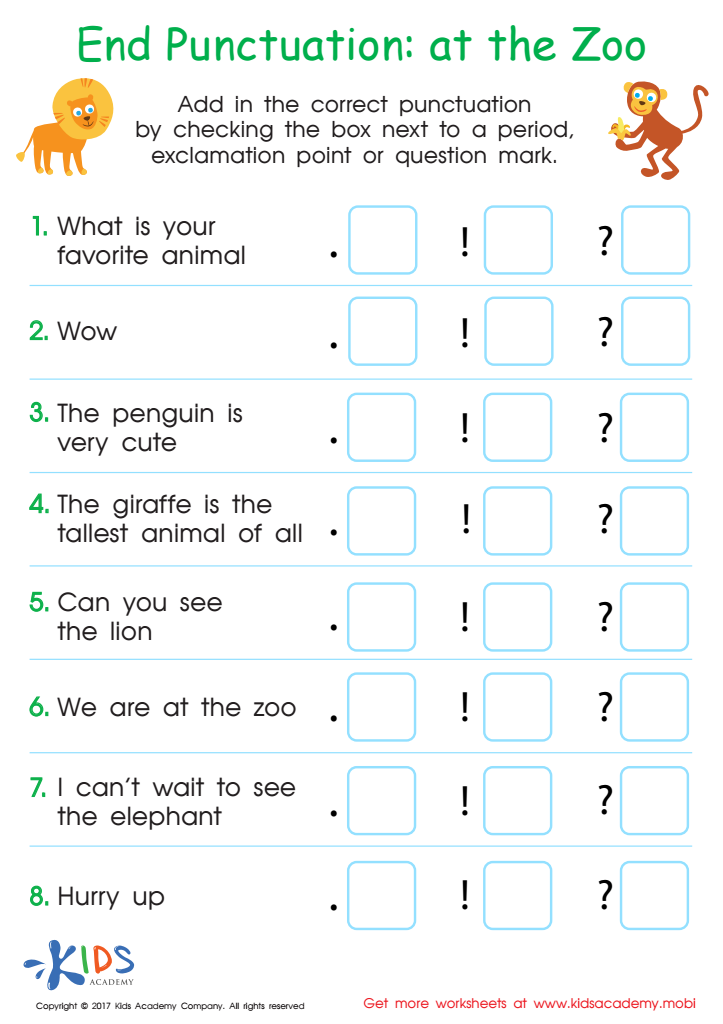

End Punctuation: At the Zoo Worksheet
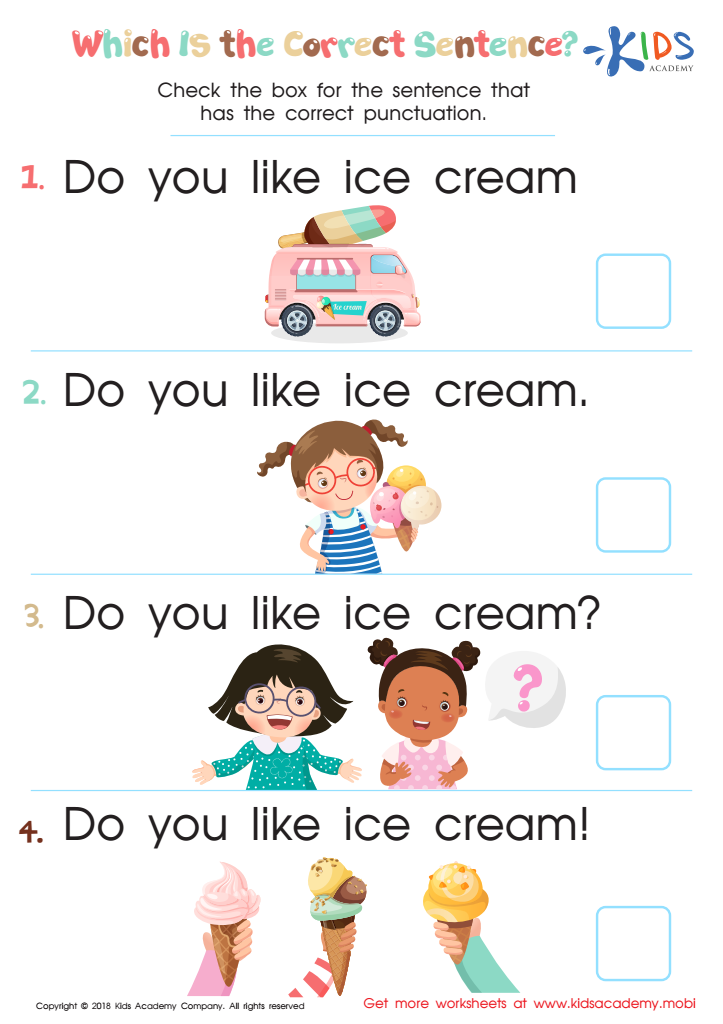

Which is the Correct Sentence? Worksheet
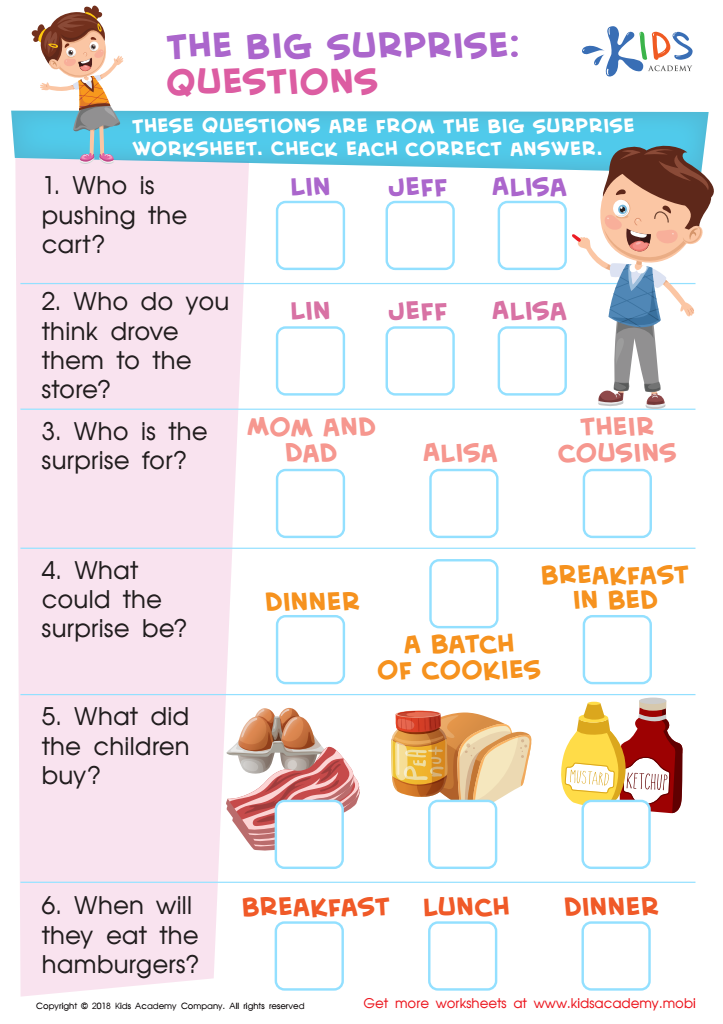

The Big Surprise: Questions Worksheet
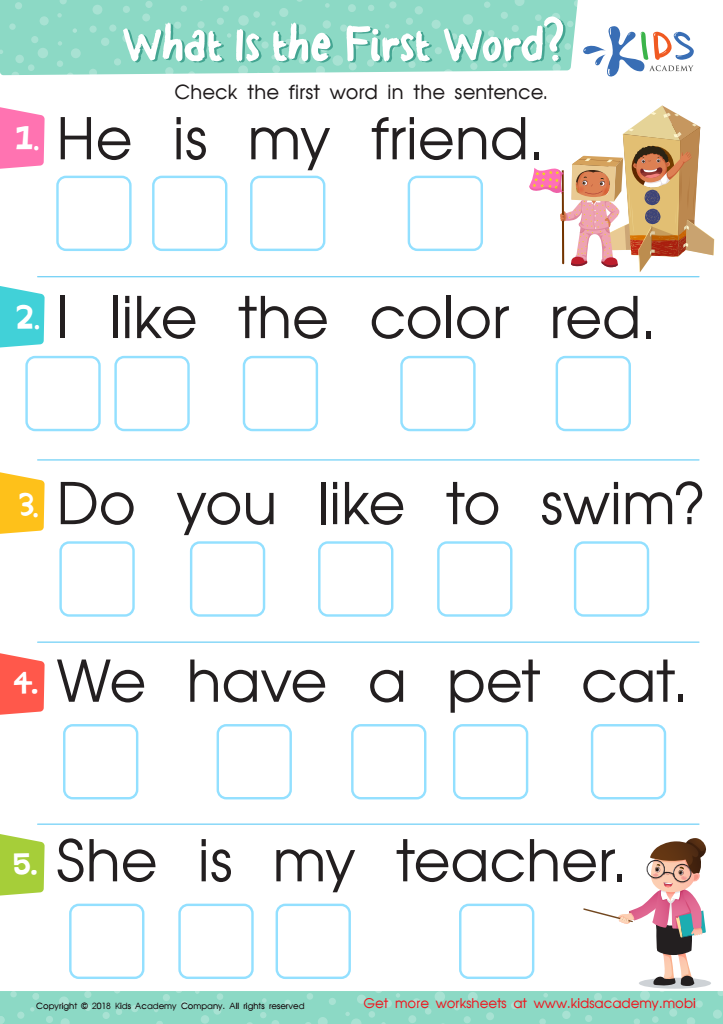

What is the First Word? Worksheet
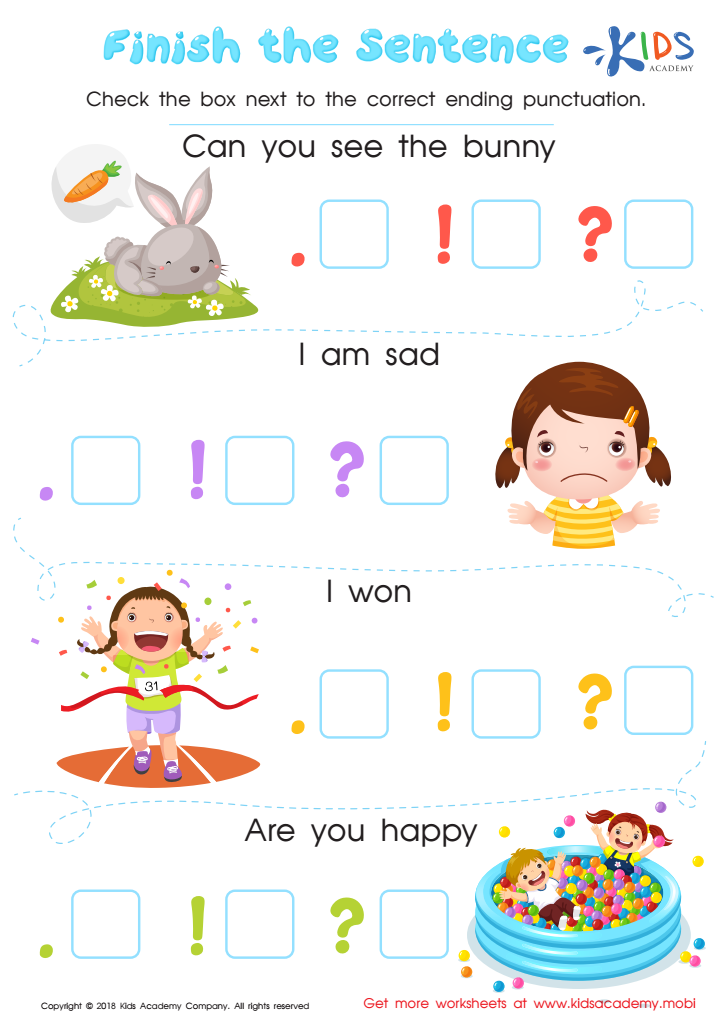

Finish the Sentence Worksheet
Reading comprehension is a crucial skill for children aged 5-8 as it forms the foundation for their overall academic success and lifelong learning. Parents and teachers should care about this developmental milestone because strong comprehension skills enhance a child’s ability to understand and engage with diverse texts, whether they are reading for pleasure or information.
At this age, children are transitioning from learning to read to reading to learn. If they struggle with comprehension, they may find it difficult to follow instructions, understand story plots, or grasp concepts in subjects like math and science, which increasingly rely on reading.
Moreover, reading comprehension fosters critical thinking and promotes creativity, enabling children to connect ideas, retain information, and express themselves effectively. Engaging with texts also nurtures a love for reading, setting the stage for lifelong literacy and learning enthusiasm.
Additionally, strong comprehension skills can boost children's confidence and enjoyment in school, helping them to develop positive relationships with peers and teachers. Ultimately, when parents and teachers prioritize reading comprehension, they are not only supporting a child’s current academic journey but also investing in their future success.
 Assign to My Students
Assign to My Students















